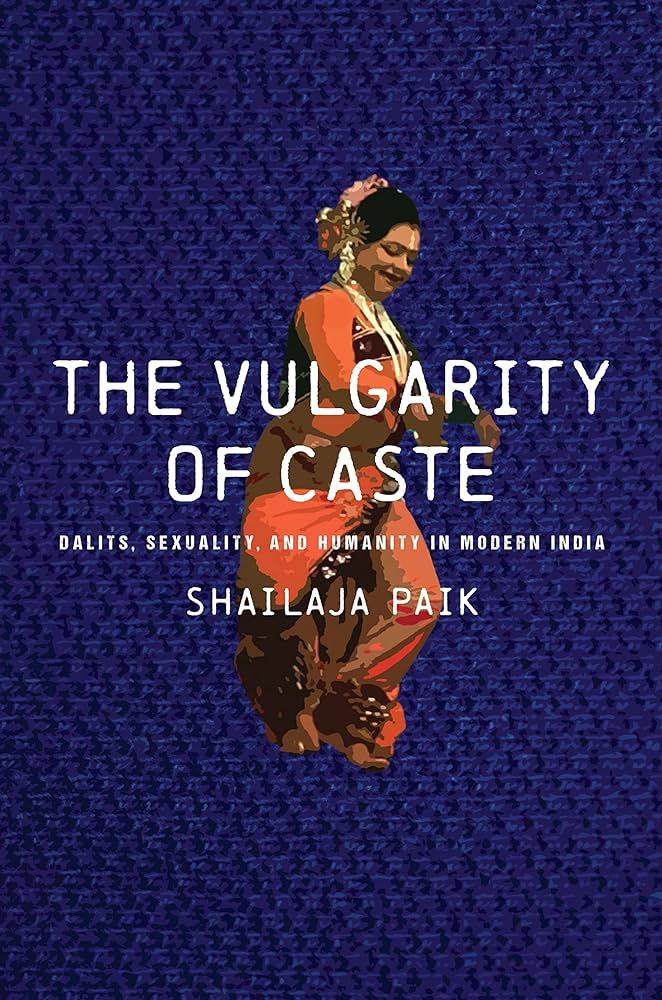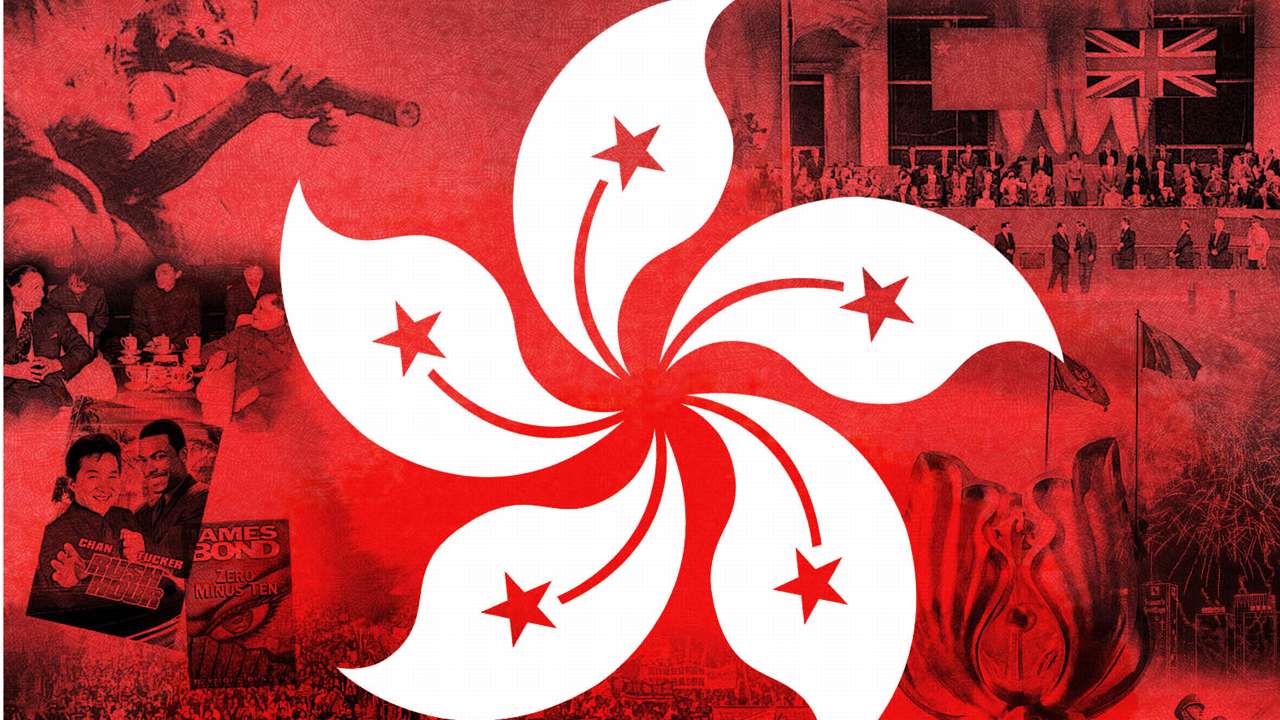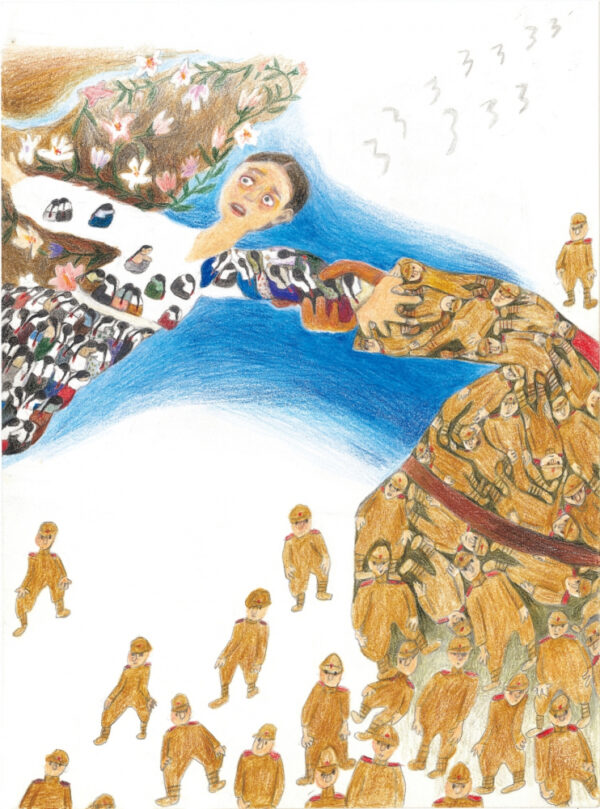On April 5, 2024, the Munk School of Global Affairs and Public Policy hosted a lecture entitled ‘Becoming Human: Illicit Desire and Licit Caste.’ Sponsored by the Centre for South Asian Studies at the Asian Institute, it featured Dr. Shailaja Paik as the speaker and Professor Malavika Kasturi as the chair. Dr. Paik is a professor of Women, Gender, and Sexuality Studies and Asian Studies at the University of Cincinnati, Ohio, USA. She has extensively researched and written about the Dalit community, particularly Dalit women. She authored ‘Dalit Women’s Education in Modern India: Double Discrimination’ in 2014, which explores the relationship between caste, class, gender, and the state’s educational system. She also authored ‘The Vulgarity of Caste: Dalits, Sexuality, and Humanity’ in 2022, which examines the politicization of caste, class, gender, sexuality, and popular culture in contemporary Maharashtra, India. Malavika Kasturi is a professor of Historical Studies at the Department of History at the University of Toronto, Mississauga. Urban history and public memory, religion in the public domain, gender and households, monasticism and asceticism, and Hindu nationalism are among her areas of interest.
The lecture focused on the intersectionality of gender, caste, humanity, and sexuality that shape identities and freedoms in South Asia. It looked at how caste is formed and maintained and its impact on Dalits’ daily lives. In particular, it focused on how Dalits mobilize to demand group rights and empower their community.
The lecture began with examining the discrimination Dalit women face, both as Dalits and as women, which results in a double marginalization. While Indian women across communities face discrimination, their experiences vary vastly, as there is no homogenous Indian woman. This distinction is particularly prominent in the challenges faced by touchable vs untouchable women, with the latter not having access to adequate education, jobs, resources, security, legal recourse, etc. Dalit women do not have autonomy over their bodies and are exploited reproductively and sexually by both Dalit and upper caste men, and lack the legal protection upper caste women have in practice, despite having equal protection in law.
Dr. Paik focused on the theme of humanism – Dalits’ politicization of their identities as humans and the revolutionization of the categories of gender, identity, and so on. She referenced Dalit activist Kumud Pawde’s work to empower Marathi Dalits and the emphasis on Manus (Marathi for human) as an identity for Dalits, who are considered sub-human and untouchable by many upper-castes. The humanism movement is important as Dalits continue to be characterized as wild, uncouth, and uncivilized, which then serve as justifications for not granting them equal rights.
Dr. Paik examined the pre and post-Independence activism of Dalit leaders and freedom fighters in Maharashtra, India. She outlined three broad themes for the lecture – Dalit womanism and humanism, Humanism and BR Ambedkar, and Post-Ambedkar humanism.
Dalits entered the political realm to fight for human rights towards the end of the 19th century against upper castes and the British. Activist couple Jyotirao and Savitribai Phule were prominent figures who worked to create an empowered and united Dalit identity and solidarity amongst Dalits across India. Dalit groups differ across many lines, including language, religion, etc. They are also differentiated from Shudras, considered lower caste but not the same as Dalits. This disunity resulted in conflict, rivalry, and ineffective activism. The Phules worked tirelessly to unite various Dalit groups and Shudras.
Other than the Phules, Ambedkar was also a leading Dalit activist during the freedom struggle and post-Independence era. He focused on the empowerment of the Stri Jaat—women as a whole. He argued that caste has to be broken down for Dalit humanism, which Hinduism cannot offer. He encouraged Dalits to convert to Buddhism to improve their lives, especially by offering political mobility to women. Ambedkar also urged women to pursue education, seek employment, and abandon markers that reveal their Dalit identity, such as their unique saree draping, to disassociate themselves from negative stereotypes. Unlike freedom fighter MK Gandhi, who relied on upper castes for Dalit reform, Ambedkar encouraged self-reliance.
Dr. Paik concluded the lecture by emphasizing that Dalit humanism is not liberal tolerance but a radical assertion of Dalits as humans. Despite facing solidarity challenges and resistance from upper-caste Indians, Dalits have worked endlessly to improve their situation and have made momentous strides, albeit with a long way to go.
After concluding the lecture Dr. Paik also answered questions from the audience, elaborating on the lives of Tamasha and Jalsa women – Dalit women who engage in erotic dance and drama and are often associated with prostitution and other illegal sex work. The negative stereotypes and misinformation surrounding these women led to the feminization of Dalit men, who are seen as unable to protect their women, and the hypersexualization of Dalit women, who become more susceptible to sexual violence.
Aditi Upadhyaya is a second year student, majoring in Political Science and Sociology, and minoring in Religion. She is an aspiring lawyer. She is interested in South Asian geopolitics and development politics. In particular, she is focused on the empowerment of women in marginalised areas.








